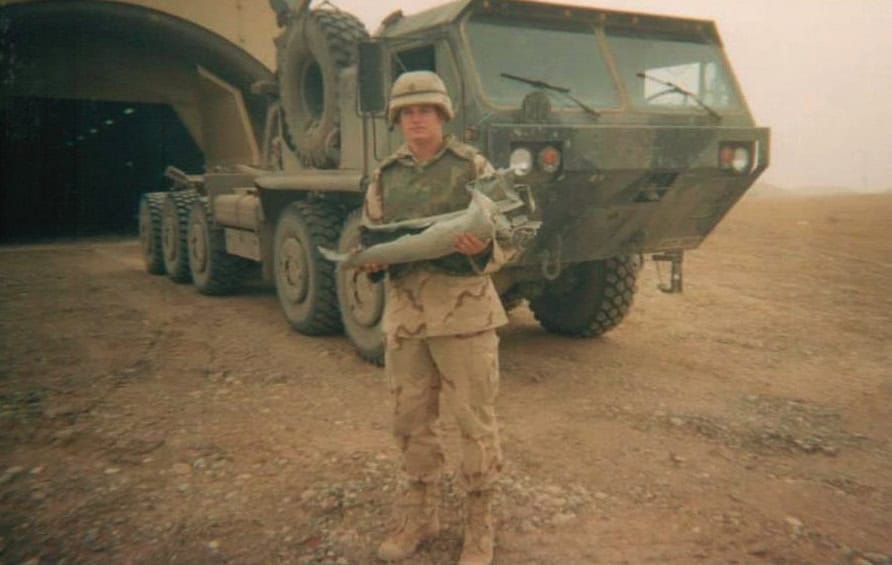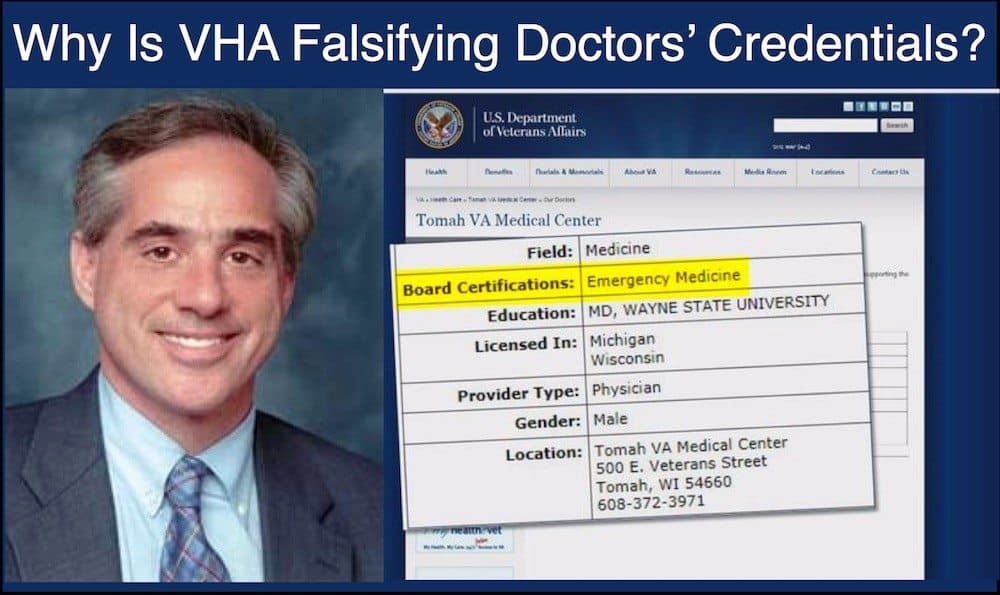Iraq War: VA Finally Admits ‘Possible Or Probable’ Chemical Weapons Exposure
Two decades after the fact, the Department of Veterans Affairs (VA) is finally revealing to certain veterans that at least one unit was likely exposed to chemical weapons during their service in Iraq.
According to a recent news story relayed through the VA, exposure to chemical weapons was deemed “possible or probable” for some soldiers who served in Iraq. The disclosure specifically mentioned Army soldiers who served in the 41st Transportation Unit in 2003 and 2004, as highlighted in a recent Stars and Stripes article.
The Department of Defense (DOD) offloaded the program to the VA around four years ago, but VA failed to take decisive action on addressing the potential exposure of veterans for many years. A recent critique from Congress followed VA’s slow-roll of its initiative to identify impacted veterans.
The VA has (finally) rolled out its VET-HOME initiative publicly on its website with a new web portal. The program aimed at using telehealth to support veterans dealing with military environmental exposures. For the past year, the VA team has been contacting veterans to assess ongoing symptoms.
But many veterans find that this support is often too little or too late.
While VA is publicly addressing the needs of veterans, finally, its benefits adjudicators are serving up roadblocks to veterans seeking benefits due to disabilities from their chemical exposures.
As described by the VA press secretary, VA is not adjudicating these claims under the PACT Act. Instead, it is evaluating them on a case-by-case basis. This may seem counter-intuitive since the PACT Act was aimed at helping veterans get benefits after being exposed to toxic chemicals. However, like Star Wars, these are not the chemicals the PACT Act is looking for…
The agency admitted its pathetic track record where only 35 claims have been granted of veterans potentially exposed from 2003 to 2011. More on this below.
Compounding the issue is the VA’s shortage of physicians skilled in treating conditions related to chemical weapons exposure. To make matters worse, the agency insists that veterans seeking benefits must provide documentary evidence of their exposure—an unrealistic expectation for many who served in those conditions.
Many of you remember when our government denied the presence of chemical weapons in Iraq, and some veterans believe there was a swift cover-up of the evidence. Now, while the VA is admitting that some exposure did occur, they are still not disclosing the exact locations of these incidents.
Fortunately, the Stars and Stripes article brought some much-needed public attention to this issue just last month.
Keep reading to learn more about what this could mean for you and what symptoms to look out for that may be implicated based on the news story.
More Details on Chemical Weapons Exposures
In 2003 and 2004, Army soldiers assigned to the unit were ordered to remove munitions and destroy the munitions at the Arlington Depot near the city of Bayji located 120 miles northwest of Baghdad. VA and DOD will not otherwise disclose the locations of another 400 former service-members who were exposed at other sites.
Shortly into the Iraq War, military leadership quickly realized Iraq was loaded with munitions of all types throughout the country. Someone in the Army Corps of Engineers noted, “There is more ammunition in Iraq than any place I’ve ever been in my life, and it is not all securable.”
According to the Army Corps of Engineers report:
“The first depot USAE established was the Arlington Depot, located five kilometers west of Iraq Highway 1 near the city of Bayji and approximately 210 kilometers northwest of Baghdad. The depot was quite large, measuring approximately eight by three kilometers in size. It contained 100 steel-arch earth-covered magazines (ECMs), 78 metal warehouses, 153 small block buildings, 316 large open-storage pads with substantial earth barricades, and 1,446 small open-storage pads. These storage buildings would be beneficial to USAE personnel during the disposal mission because they provided premade storage facilities. Of course, the Iraqi military had far lower standards for munitions storage than the United States and other Western nations; therefore, many of the facilities were dangerous and could not be used or had to be adapted.”
Did DOD take all necessary steps to mitigate risks from exposure to known biohazards of soldiers at Arlington Depot? Perhaps not.
Per the Stars and Stripes article:
The Defense Department has not disclosed the locations where the 400 veterans were exposed to chemical weapons, and the VA does not grant disability benefits for chemical weapons exposures under the Sergeant First Class Heath Robinson Honoring our Promise to Address Comprehensive Toxics Act of 2022, known as the PACT Act.
Conditions related to sarin, mustard gas and other chemical warfare agents were not included by Congress in the PACT Act, according to Terrence Hayes, the VA press secretary. Veterans can receive disability compensation for exposure if their military record shows confirmed contact with the chemical weapons, according to the VA. Claims are decided on a case-by-case basis.
The VA said this week that it has granted 35 claims for disability benefits related to chemical weapons exposure in Iraq from 2003-2011.
Did you catch that?
The agency will adjudicate on a case-by-case basis. VA will rely on the veteran’s own “medical records” that must show “confirmed contact” with “chemical weapons.”
Pause.
VA and DOD had knowledge and evidence showing veterans were exposed to chemical weapons in Iraq sufficient to warrant creating a program at least four years ago. That program was then handed off to VA.
The PACT Act was passed in 2022. VA had a program for chemical weapons exposure in 2020.
Yet, when advising Congress on the language of the PACT Act, chemical warfare agents were omitted from the list including known chemical warfare agents. Or, at least, that is how VA interprets the PACT Act’s authority for the time being. Why? Why were those chemicals not expressly included given reports from veterans?
That said, VA is forcing these veterans to provide direct evidence of chemical exposure in their medical records from service. This criterion is more akin to a snipe hunt than a proper adjudication based on what the agency knows to be true.
How many of you in combat who saw something looking like chemical weapons took a hot minute to swing by your medical tent before embarking on the next mission?
The agency admits 35 claims have been granted. VA failed to disclose how many claims have been denied.
Again, the agency is likely fully aware of where the chemical weapons were. They don’t want to disclose the information based on… National security…? Is that why?
Or is VA afraid of tipping off the public on massive levels of malfeasance where our military failed to protect its troops?
Remember, this is an election year.
It seems more likely that, during an election year, VA would want to prevent this information from coming out or at least to minimize the reports in the press.
Note the operation to inform and assess veterans was handed off to VA approximately four years ago. That is 2020.
Despite VA’s assurances it would improve transparency under the Biden-Harris Administration, we have seen the opposite for many years at VA, and our soldiers and their families now pay the price.
Of course, Congress is involved, but frequently Congress does too little too late, and no one at the agency is held accountable.
Tester Says PACT Act Does Work
Senator Jon Tester, D-Mont, seems to disagree with Hayes’s official agency position.
He reportedly believes the framework of the historic legislation allows for VA to establish additional toxic-exposure presumptions.
“I urge VA to continue to use it to make sure this law is implemented the way Congress intended,” he said. “Every veteran exposed to toxins during their military service deserves access to the health care and benefits they earned and were promised.”
If VA has the authority to do this without a historic act of Congress, why is the agency delaying?
Perhaps because the number of veterans impacted by exposure is far greater than 400 soldiers.
Rep Brecheen Pushing VA For Answers
VA has apparently had the program “offloaded” from the DOD over four years ago. Since then, VA has slow-walked the roll-out.
Rep. Josh Brecheen, R-Okla, is pressing VA Secretary Denis McDonough about delays in rolling out the program asking the secretary to speed up evaluations and treatments for impacted veterans. However, the secretary has not responded directly.
“There has been a four-year delay in program activity between when the DOD offloaded the program to the VA and when the VA informed the surviving members of 41st Transportation Company that they were eligible for evaluation and for treatment as necessary,” said Ben Decatur, communications director for Brecheen.
Brecheen has not heard directly from McDonough but was told by the VA secretary’s staff that the VA has plans to restart the program, Decatur said.
“Congressman Brecheen will continue to work with the VA to improve its operations. Congress has an obligation and the constitutional power to provide our veterans with adequate medical care,” he said.
A History of Troop Neglect
The Iraq War veterans in question were exposed to chemical weapons, a risk that was “possible or probable,” according to the VA. Despite this acknowledgment, the VA has been slow to act.
The clinical program designed to monitor these veterans’ health has faced lengthy delays, leaving many without the care they desperately need. This is not just a matter of administrative lag; it is a matter of life and death for those affected.
Morgan Hopson, one soldier on the deployment, described his observations based on sight and smell.
The munitions had an acrid odor. They leached an oily liquid and appeared to have been recently filled and stacked. When detonated, they produced unusual plumes.
“The outside of the rounds was still wet and there was a trail of liquid to mobile mixing units,” one Hopson said. “The units were these huge metal containers with tubes running from them. They had been emptied out and were laying on their sides when we found them.”
“There were no decontamination procedures in place,” he said. “We were told to get the job done, but this was a secret mission and not to discuss it further.”
Istvan Gabor, one sergeant on the deployment, lost consciousness after uncovering weapons in a large bunker.
“That was one of the first things that happened to us. When we went into this bunker and opened it up, everyone passed out. There was this oily liquid leaking from the rounds. We were like, ‘Whoa something is wrong here.’‘’
Members evacuated the bunker but returned that evening. Several reported headaches, confusion, shortness of breath and extreme sweating and salivating after working there, he and others said.
“I was touching the weapons, loading them and taking them to the detonation site — doing this every day,” Gabor said.
Where are the Army memoranda addressing the incident?
Why did Army leadership fail to ensure the soldiers onsite were wearing appropriate protective equipment?
Description of Soldiers’ Symptoms
Soldiers reported symptoms ranging from loss of consciousness to inflammation to sudden hemorrhage of vessels in the mouth.
“I can wake up in the morning and find that the skin is falling off my hands or have a rash that rapidly spreads throughout my body and that happens internally, too,” Hopson said. Doctors at the VA’s War Related Illness and Injury Study Center explained chemical weapons exposure can cause universal changes in bodily systems, he said.
Hopson reports he was medevacked from Iraq with a high fever, abnormal blood tests, and bleeding from his mouth after his unit cleared out and destroyed the munitions. He was later hospitalized in Germany, suffering from a high fever, confusion, extreme headaches, blistering on his hands and torso, and “blood sweating,” a rare condition in which an individual’s skin seeps blood.
After being medically discharged from the service in 2005, Hopson experienced a “watershed stroke” caused by a sudden drop in blood flow to the brain, he said. He has continued to experience inflammation in different parts of his body that require immediate treatment. But he said he was denied disability benefits related to chemical weapons exposure.
“I was among the first ones to be assessed. But the VA does not seem to have the systems in place for treatment and the doctors are uncertain about how to deal with this,” he said.
Hopson said his assessment supported a finding of chemical weapons exposure, but there is no plan for follow-up treatment.
“They’re like, ‘Hey you have these conditions from chemical weapons,’ but they seem to have no doctors with knowledge about treatment. It’s a problem. You cannot get appropriate care,” he said.
Kendra Peachey-Lubin helped remove the ordinance while deployed to Iraq and has sought benefits from VA for chemical weapons exposure. She developed asthma, neuropathy, and severe headaches. Shortly after returning from deployment, she gave birth to a son who is permanently disabled.
Gabor, who has never received disability compensation or health care for problems related to chemical weapons exposure, says his claim for benefits disappeared from the online portal.
Shortly after separation from the Army, Gabor developed an aggressive form of cancer that was treated, and he still experiences chronic multisymptom illness.
Veterans frequently complain of conditions without understanding the source. Veterans with similar symptoms may want to reach out to VET-HOME to set up an appointment as soon as possible.
Failure to Medically Retire Army Soldier
The Army gave Hopson a medical discharge instead of medical retirement from the Army, which he probably qualified for given his noted symptoms.
How could a person suffering from these conditions continue to serve in the Army?
Given the symptoms described by Hopson in the article, it is unclear how the Army did not find him Unfit for Duty. Being Unfit for Duty means a person is unable to perform the duties of their office, rank, or grade.
This includes but is not limited to:
- performance of job requirements
- fulfill military responsibilities
- meet physical fitness requirements
- cannot be deployed
- cannot wear equipment and gear.
The disabling condition or conditions will generally be permanent and rated at 30% or higher for individuals with less than 20 years of military service.
Fortunately, for veterans in this circumstance, there may still be hope at a medical retirement with the right legal assistance, so do not give up simply because the Army screwed the pooch 20 years ago. To find a competent attorney familiar with DOD and VA shenanigans.
What About the Chemical Exposure to Kids?
Sadly, the impact of chemical exposure is not limited to those who were exposed. Children of these veterans pay the ultimate price.

Peachey reports she became pregnant while serving in Iraq when she was handling abandoned weapons. Her son, Hunter, was born with a rare medical condition causing intellectual disability, muscle weakness, and feeding difficulties. He is non-verbal and cannot walk. Peachey is Hunter’s caregiver.
Gabor’s son was diagnosed at birth with brittle bone disease.
Here is a list of 10 possible disabilities reported in children whose parents were exposed to chemical weapons, based on findings in medical literature:
- Congenital Heart Defects: Structural problems with the heart present at birth, such as holes in the heart walls (septal defects) or malformations of heart valves. These defects can lead to poor circulation, difficulty breathing, and other health issues.
- Cleft Lip and Palate: A condition where a baby is born with an opening or split in the upper lip and/or the roof of the mouth (palate). This can cause feeding difficulties, speech problems, and an increased risk of ear infections.
- Neural Tube Defects: Birth defects of the brain, spine, or spinal cord, such as spina bifida or anencephaly. These conditions result from incomplete development of the neural tube during early pregnancy, leading to severe physical and neurological impairments.
- Microcephaly: A condition where a baby’s head is significantly smaller than expected, often due to abnormal brain development. Microcephaly can lead to developmental delays, intellectual disability, and physical disabilities.
- Developmental Delays: Delays in reaching developmental milestones in areas such as speech, motor skills, and social skills. These delays can vary in severity and impact a child’s ability to learn and interact with others.
- Autism Spectrum Disorders (ASD): A range of developmental disorders that affect communication, behavior, and social interactions. Children with ASD may have difficulties with speech, repetitive behaviors, and social skills.
- Attention Deficit Hyperactivity Disorder (ADHD): A neurodevelopmental disorder characterized by inattention, hyperactivity, and impulsivity. ADHD can affect a child’s ability to focus, follow instructions, and control impulses.
- Learning Disabilities: Disorders that affect a child’s ability to learn specific skills such as reading, writing, or math. Learning disabilities can make it difficult for a child to process and understand information.
- Hearing Loss: Partial or total inability to hear, which can result from exposure to toxic chemicals affecting the developing fetus. Hearing loss can impact language development, communication, and social interactions.
- Endocrine Disorders: Conditions that affect hormone production and regulation, such as hypothyroidism or diabetes. Exposure to chemical weapons can disrupt the endocrine system, leading to growth problems, metabolic disorders, and other health issues.
These disabilities highlight the potential impact of chemical weapon exposure on the health of future generations, underscoring the need for further research and comprehensive care for affected families.
The Need for Immediate Action
The VA must prioritize the health and well-being of these veterans. The delays in implementing the clinical program are inexcusable, and immediate action is required. The VA needs to expedite the process, ensuring that all 400 identified veterans receive the monitoring and care they need.
This is not just a matter of fulfilling a promise; it is a matter of moral obligation.
The VA’s delayed response to the health concerns of Iraq War veterans exposed to chemical weapons is a glaring example of institutional failure.
Lawmakers and veterans alike have voiced their frustrations, and it is high time that the VA listens. These veterans have already sacrificed so much; the least we can do is ensure they receive the care they deserve. The VA must act now, without further delay, to rectify this situation and restore faith in its commitment to those who have served.
Time to Speak Your Mind
If you or someone you know has been affected by these policies or delays, we want to hear your story. Your experiences matter, and sharing them can make a difference. Policymakers in Washington, DC, pay attention to what veterans like you have to say, and your voice could help bring about much-needed change.
Have you sought help from a VSO or CVSO to get the benefits you deserve but faced challenges along the way? We want to know about that too. The CVSO program is a government-supported solution to help veterans navigate their claims. If these resources are falling short in helping veterans secure the justice they deserve, your insights can highlight what needs to be improved.
If you’ve run into problems with your initial claims being denied and need additional support, our veteran rights law firm focuses on helping veterans like you fight for the benefits you’ve earned.
Share your experiences below, and remember, we’re here to help you navigate this journey every step of the way. Together, let’s work to hold those in power accountable and improve the system for all veterans.
Source: https://www.stripes.com/theaters/us/2024-08-21/iraq-veterans-chemical-weapons-exposure-14936305.html





It’s funny that in China people are happier with the government than people are here in the USA with this government. And people in China aren’t just saying that because they’re scared of the government. It’s really true. So we have have dysfunctional democracy here in the USA, we vote for our so called leaders, yet people hate the government. And China is supposedly some evil authoritarian system? What the fuck is going on here man?
Three biggest snake oil salesmen in America today are priests, politicians, and psychologists…all three of which can be found at the VA. Save yourself the trouble and dishonor, think critically and act, obtain health insurance and leave them standing there holding their cocks. That’s the best way to honor and take care of yourself. Don’t leave your well-being in the hands of liars and snake oil salesmen.
Psychologists at VHA are snake oil salesmen. They’re unsupervised. They make bogus claims. They insult people if they get pissed. They can’t be fired! Who wants to sit in front of someone who makes bogus claims and can’t be fired!
All this bullshit is on the federal courts. They aren’t performing their function in our democracy. Things wouldn’t even be this fucked up if they weren’t derelict in their duties and throwing out the suits. What the fuck do they think their function is?
Thanks for reporting on this Ben,
We’ve seen this movie before Agent Orange, Burn Pits, etc. The VA hierarchy needs to be gutted. There needs to be Real Consequences for these failures.
I appreciate your optimism that our congressional leaders will take notice and act, but the systemic denials from the VA and incompetence to care for our Veterans is ingrained and Congress is a big part of the systemic legislative failure to impose consequences on those responsible.
It’s not Congress fault man the courts aren’t performing their function. They should be issuing rulings again the VA and personnel. The Congress can’t even get the rogue entities to answer simple yes or no questions and the stupid federal workers are protected. They need to be unprotected because that’s not the original intent of protection for federal employees. The protections aren’t for malfeasance, fraud, abuse, and dereliction of duty… which is what they do when they don’t carry out the law. They should be sued and/or thrown in jail. Only the courts can make that happen.
You remember the Muslims were blowing themselves up in cars to get us the fuck out of the Middle East? Gee I wonder why? Look no further than our dysfunctional systems and ask yourself who would want that for their country. Who would want such a phoney theater production for their country. There are far worse places than the USA but there are better too. Maybe we ought to do to people at the VA what the Muslims did in the Middle East and get rid of the mother fuckers.
If you have a serious life threatening problem they have to fix it to remain credible and valid as an actual healthcare system. If you need a hearing aid, they’ll do that too after you support the federal workforce by taking a spin on some merry-go-round. Everything in between, you can fuckin forget it. Hope you have insurance. There’s a high likelihood that you’ll be sent home to rot in pain or some other unhealthy state of being.
Very few people would have been exposed to those things if they were honest about it. I don’t see a huge issue. Guarantee they deny care for pretty much anything for decades anyway so… nothing new here.